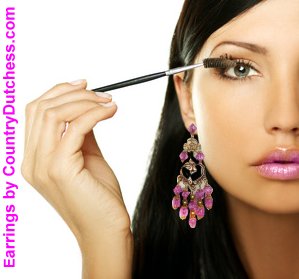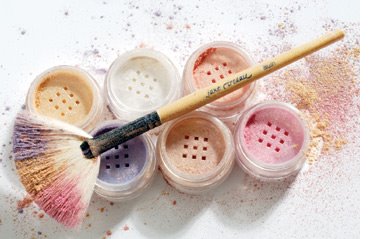In a recent TV commercial for the osteoporosis drug Boniva, actress Sally Field tells us to boost bone health by eating more calcium-rich spinach. But experts say that may be some very wrong advice. Here's what you need to know.
By Colette Bouchez
You can hardly miss the commercials featuring award winning actress Sally Field. The product is Boniva, the once-monthly bone enhancing prescription drug for osteoporosis, a bone thinning disorder that affects mostly women over age 50.
But what many of you may miss – or worse still pay attention to – is the big “oops” in the commercial.
And that "oops" is Ms. Field telling us we can also boost our bone health by eating high calcium foods such as “cheese and spinach”. So where’s the goof? It’s in the spinach.
While spinach does indeed contain substantial calcium - which is good for your bones - it also contains a potent natural chemical known as "oxalic acid" . And that interferes with calcium absorption big time!
According to the Harvard Health Letter, “ A cup of frozen spinach contains almost as much calcium as a cup of milk, but only a tenth as much is absorbed because of the oxalic acid.”
And a number of studies seem to prove this out. In data published in the journal Nutrition Research as far back as 1987, researchers showed that when comparing calcium absorption from women eating cheese vs women eating spinach, those who ate the spinach absorbed far less of this important nutrient.
In fact, according to what is considered the gold standard of medical nutritional information - The 50th Anniversary Edition of the text book Modern Nutrition in Health and Disease (Lippincott, Williams and Wilkins), the authors write that “ The most potent inhibitor of calcium absorption is oxalic acid, found in high concentration in spinach, rhubarb, and to a lesser extent sweet potatoes and dried beans.”
The authors go on to write that calcium absorption from spinach is only 5% compared to compared to 27% from milk .
The other calcium inhibitor is phytic acid, which can be found in things like wheat bran cereal or dried beans.
So what does this all mean? It means that if you are relying on foods like spinach to get your calcium you're going to come up dangerously short.
Spinach Is Good – But Not For Your Bones
Spinach is, in fact, a wonderful vegetable, loaded to the brim with folic acid, one of the single most important nutrients for women. It also contains other B vitamins and vitamin C and it’s a great source of fiber. So certainly, it’s important to include spinach in your diet. And personally I love it!
But that said, if you’re eating it for bone health – as Boniva suggests – you’re not only going to come up dangerously short, you’re probably going to need a lot more of their bone enhancing drug in order to compensate for the calcium you're not getting by eating spinach!
Now of course I’m not saying that Boniva intentionally wants you to be low on calcium in order to sell you more of their bone enhancing medicine. And I certainly am savvy enough to know that the commercial in question which pushes spinach as a good source of calcium was likely written by an advertising copy writer and not a physician or even a staffer at Genentech, the makers of Boniva .
But, while the Boniva website does list spinach as a “ minor” nutritional source of calcium ... it also places it in the same rank with broccoli and kale, both of which are way higher in calcium and don’t contain oxalic acid. What’s that about?
Perhaps of even greater concern is that if the powers that be at a major pharmaceutical company can’t even take the time to watch their own commercial – and spot the misinformation – it just begs the question, what else are they overlooking, in their research, in their test results, in the production of their medications?
It could be they are spending so much time and energy on giving us the perfect drug that they have no time to watch daytime TV. I hope that's the case. But I don't know.
What I do know is that Sally Fields is an awesome actress with a powerful voice. But right now, thanks to Boniva, she’s giving us women some wrong and some potentially harmful health information . And that’s not good for us – or good for Sally.
They say you can’t believe everything you read about your health on the Internet. Apparently the same is true about you hear on TV. Maybe we should just spend a little more time reading books. Or how about listening to our doctors...what you think?
For the latest health, beauty and style commentary for women over 40 subscribe to RedDressDiary - It's Free! And be sure to check out CheapChicDiary.com for money saving beauty and style tips!
Copyright by ElleMedia Network 2010 - All Rights Reserved. In addition to US Copyright, the text of this RedDressDiary article is licensed under a Creative Commons Attribution-ShareAlike 3.0 License. All formatting and style elements of this page are not available under this license, and Colette Bouchez retains all rights in those elements. The publishers and producers of this blog may or may not directly or indirectly benefit from any products or services that appear in or on this blog.







































